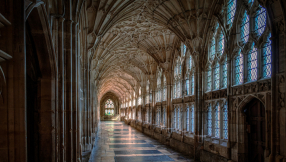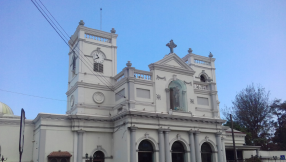Egypt's President Abdel Fattah el-Sisi yesterday ratified the country's controversial and long-awaited new law regulating the building of churches, Al-Ahram news website reported.
The new law, which has been both welcomed by some Christians and criticised by human rights organisations, was approved by the House of Representatives in August.
According to the official gazette, Sisi also approved the building of a new Coptic Orthodox church in new Cairo.
The gazette has published all 13 articles of the law, which regulates the construction and restoration of churches in Egypt.
Under the new law, regional governors must rule within four months on Christian church-building and renovation applications, and provide a "justified decision" if refusing authorisation, though this is subject to appeal. The law has been welcomed by the Coptic Catholic Church.
However, according to Human Rights Watch (HRW), the new law continues to discriminate against Christians by maintaining restrictions over the construction and renovation of churches. It "allows governors to deny church-building permits with no stated way to appeal, requires that churches be built 'commensurate with' the number of Christians in the area, and contains security provisions that risk subjecting decisions on whether to allow church construction to the whims of violent mobs," HRW said.
Egypt has an estimated population of nine million Christians. Mostly Orthodox Copts, they account for around 10 per cent of Egypt's population, which is overwhelmingly Sunni Muslim.
Egyptian Christians have long faced problems when trying to build new churches because of extensive state regulations. Egypt currently grants common law rights to mosques but not to churches.
Due to the regulations, some congregations have been forced to attempt to build unlicensed churches or carry out their religious practices in buildings that have not been designated for religious practices.
The new law has been a long time coming. Last month, Egypt's Coptic Orthodox Church attacked "complexities and obstacles" in amendments to the draft law after meeting with state officials.
Egypt has seen a number of Muslim mob attacks on Christians in recent months amid rumours that secret churches are being set up.
A group of Egyptian Christians took part in a rare protest in downtown Cairo in August, saying that they are being treated as second class citizens and calling on the government to defend their rights.
The protest followed a string of attacks against Christians, especially in the Minya region, home to a relatively high proportion of Coptic Christians.
In July, police arrested 15 people after an arson attack on homes belonging to Coptic Christians in an Upper Egyptian village.
Days before that, the Coptic Orthodox Archbishop of Minya, Anba Makarios, called on police to enforce the law protecting citizens from sectarian violence, saying that attacks are taking place at an average of one every 10 days.
On July 5, an Orthodox Christian nun from Mar Girgis Monastery in Old Cairo was killed after reportedly being hit by a stray bullet on the Cairo-Alexandria Highway.
June saw the assault on homes of Christian families in the village of Karm el Loofy, the burning of a kindergarten run by Christians in Minya, and the murder on June 30 of Rafael Moussa, a Coptic Orthodox priest of the church of St George.
In May, also in Minya, a 70-year-old Christian woman – said to be the mother of a man who was allegedly romantically involved with a Muslim woman – was stripped naked by a mob of 300 Muslims and paraded through the streets of her village.
Tensions between Christians and Muslims have intensified in the country since the Arab Spring of 2011.
The worst single incident came in February 2015, with the beheadings by Islamic State of 21 Egyptian Christian migrant workers.













